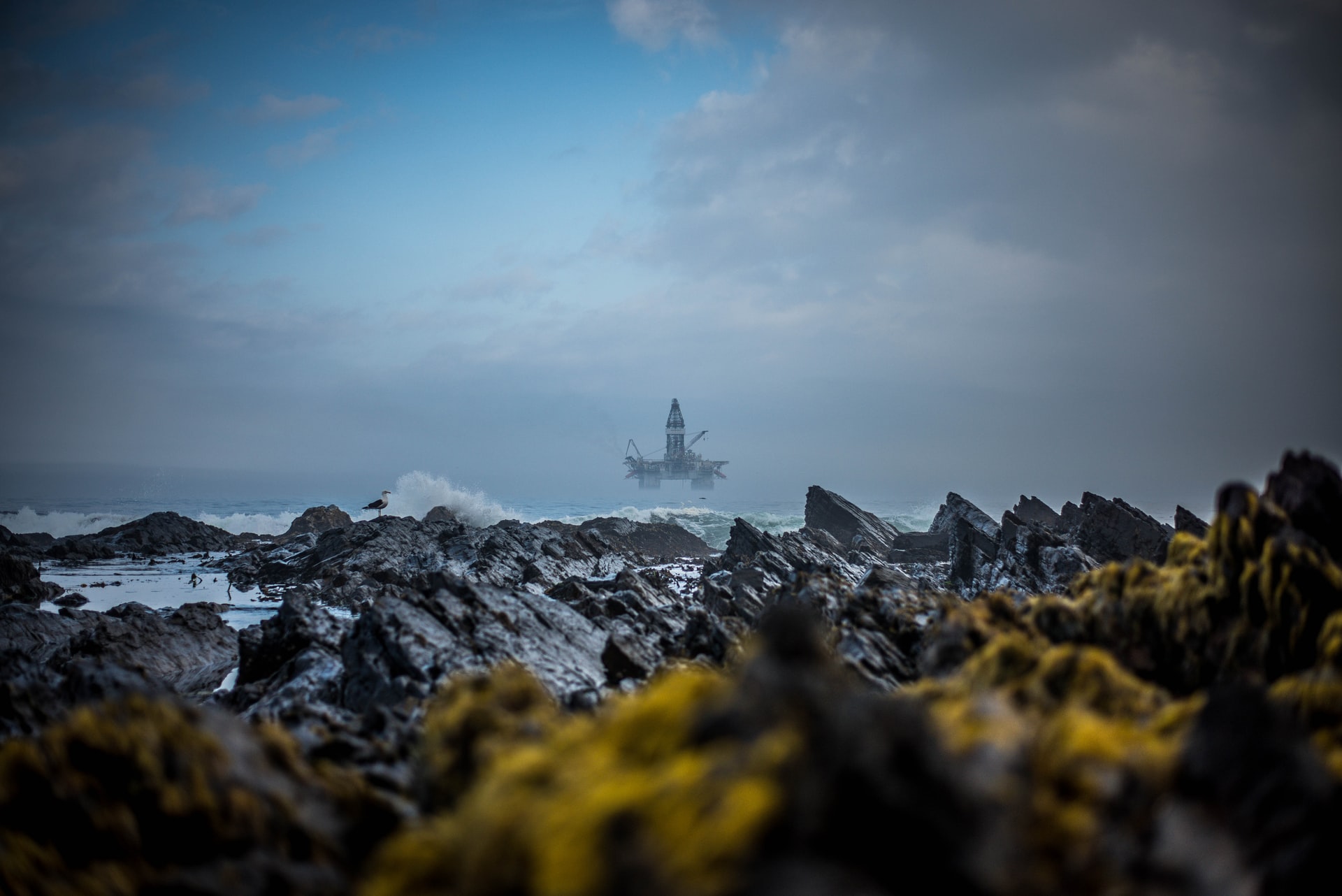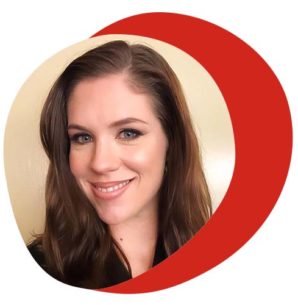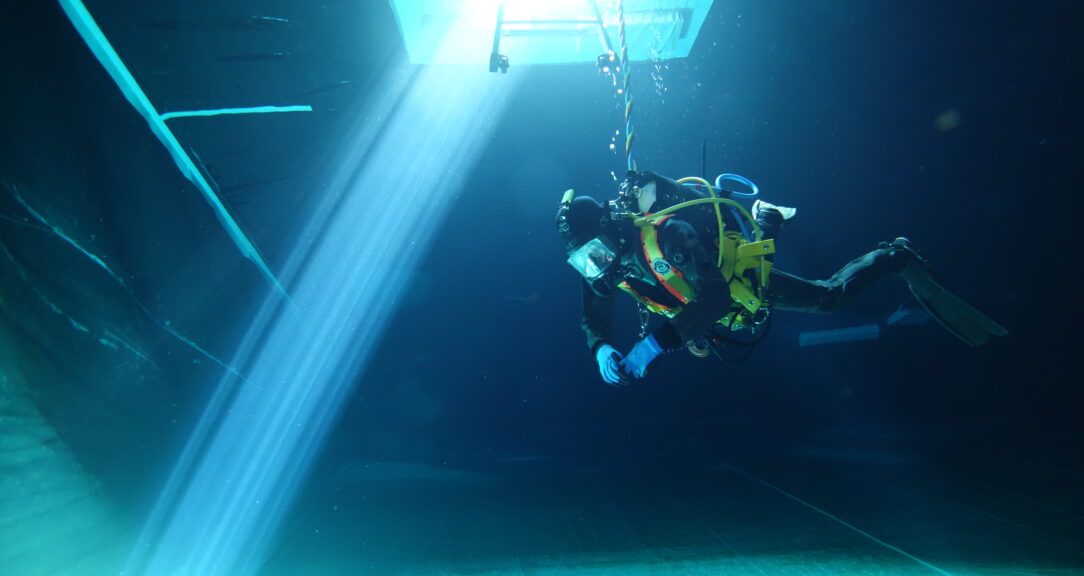Before the pandemic, Jeff Wilson traveled often as a regional connectivity engineer in the oil and gas industry.
Between 2015 and 2020, his work included multiple-week trips to places including Cameroon, Nigeria, Trinidad, Brunei, Singapore and Russia, as well as assignments in Australia, his home country. His skills are incredibly specialized: He estimates there are only 100 people in the world who know how to do his job. And a certain level of risk simply comes with the territory.
“There were all the hazards that are part of the oil and gas industry, such as hazardous materials and high pressure,” he says, “and then in some countries, there’s also political unrest and violence.” Oil is sometimes stolen directly from the pipeline, and there is danger of attacks at worksites.
I remember looking over the edge of the rig into the water, and there were thousands of sharks swimming around.
Jeff Wilson
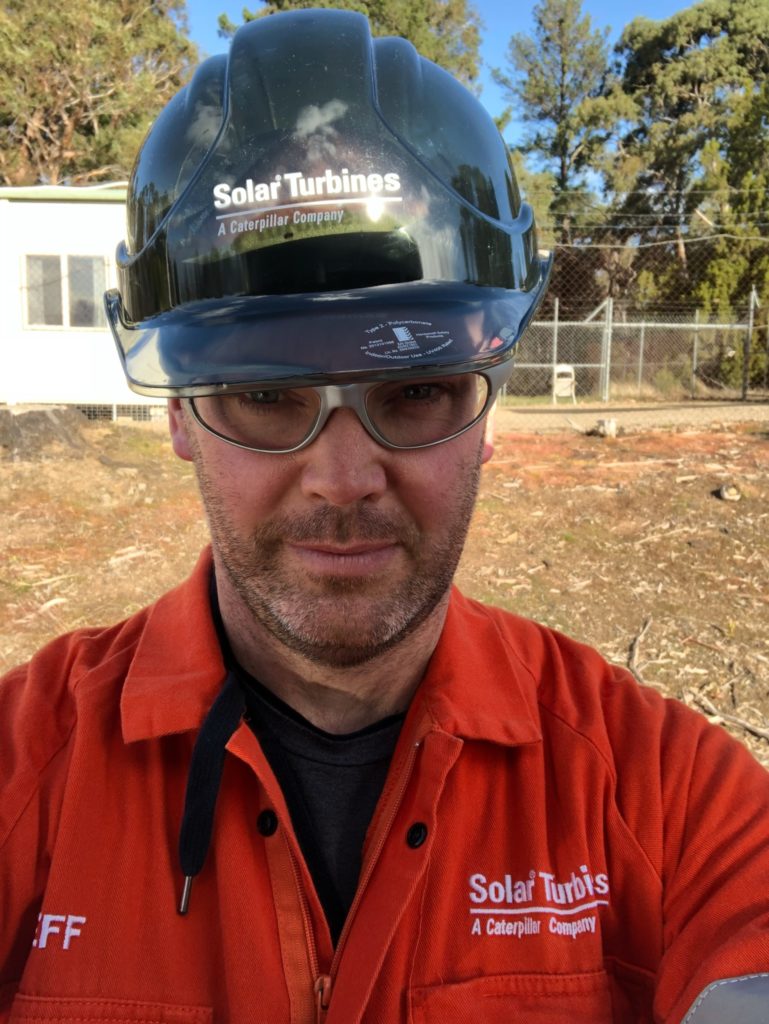
In some places, Wilson was housed in specific facilities for employees. When he stayed in hotels, he was often under strict instructions not to leave the premises. He’s been ferried in bulletproof cars with a front and tail escort; sometimes the risk of highway bandits was so high that he had to be helicoptered into a worksite.
Before working on an offshore rig in Western Australia, Wilson received training on how to escape from a helicopter if it crashed into the water.
“After we arrived, I remember looking over the edge of the rig into the water, and there were thousands of sharks swimming around,” he says.
A hardship allowance is compensation for an employee doing dangerous work or experiencing a significant deterioration in living conditions when working in a new location for a certain period of time. While the incentive is colloquially called danger pay, hardship pay or hazard pay, companies tend to avoid such terms because of perceived negative connotations or legal ramifications.
Instead it’s often referred to as a cost of living allowance (COLA), aiming to entice key personnel to accept an international transfer. “Ultimately, it’s the same thing,” says Sebastian Reiche, a management professor at IESE Business School in Spain. “Compensation is a very delicate issue.”
Calculating risk
Most companies do not disclose the specifics of what they pay to the media or potential recruits. For Wilson, each of his work site locations are given a hardship rating by his company, scored from one to 100. The rating is calculated according to the level of danger, a location’s remoteness, the quality of the lodgings, and whether English is spoken. In Australia, all of the site ratings were under 35. In Nigeria, the site rating was 85, and so Wilson was paid a 25% premium on top of his base salary and overtime during a 10-day assignment there.
American consulting firm Mercer is in the business of pricing risk for expat assignees. Its location evaluation reports assess factors that make up daily life in a particular place: housing, pollution, disease and sanitation, medical and education facilities, remoteness, political violence, and the availability of goods and services. The final evaluation score is a recommended premium that represents a percentage of an employee’s pay to be added to their base salary during the assignment.
Reiche suggests that even before Covid-19 drastically cut mobility, there was a trend over the past 15 years of companies looking to cut costs. Sending staff abroad can be incredibly expensive.
“Rather than moving whole families, there have been shorter-term assignments of up to a year, and business travel has increased greatly,” Reiche says. “There has also been the phasing out of an expat salary: A person gets paid an expat’s salary for three years and then afterwards, if they want to stay, they are gradually shifted to a local salary. Another approach is to move the employee from a developing country to the headquarters, rather than the other way around.”
In the early pandemic, some U.S. states and cities mandated hazard pay increases for essential workers whose jobs could not be done at home — manufacturing, retail and healthcare workers, for example. A number of large companies also offered temporary hourly pay increases and bonuses to frontline workers who risked contracting Covid-19.
Pricing danger and hardship is inherently subjective. It depends a great deal on an individual’s life experiences and background. According to Reiche, companies aim for consistency and a perception of fairness when creating standardized compensation rates.
“Putting a value on risk is an inexact science,” he says. “Individuals have very different risk profiles and perceptions of what it will be like to live and work in a particular area. Even though one person might see something as a bigger risk than another person, there needs to be very clear guidelines of how much that risk is worth.”
Lemurs and Kalashnikovs
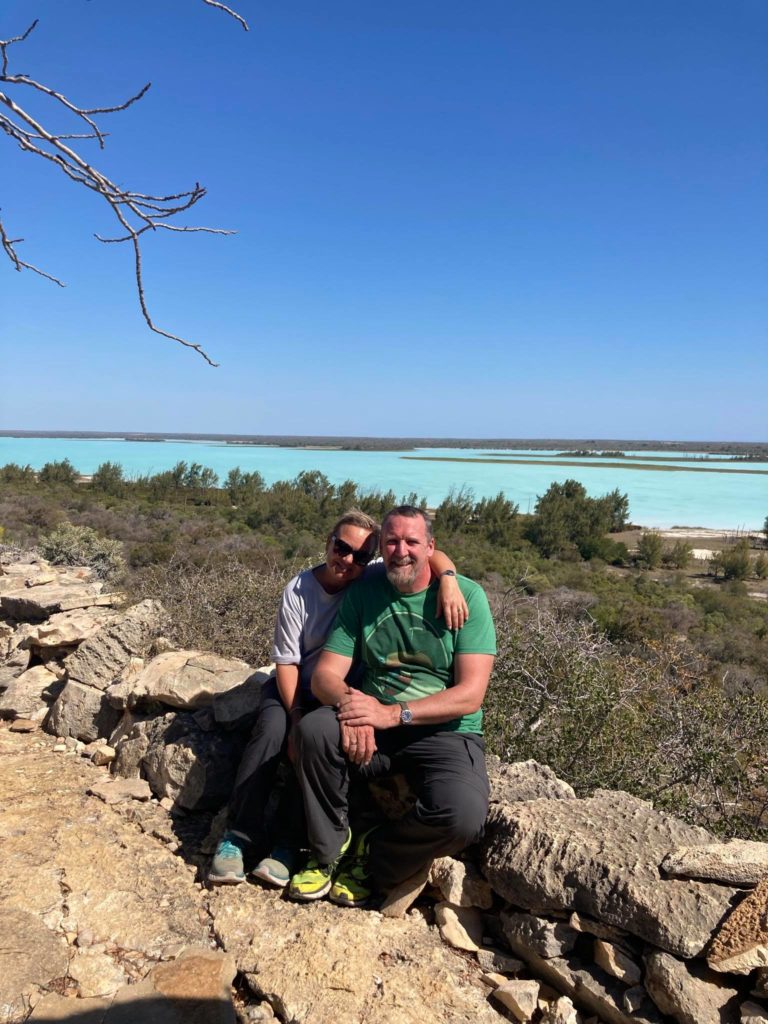
A year ago, Vicky Blades and her two sons left Belfast, Northern Ireland, to join her husband in Madagascar, where he had begun working as a marine conservationist for a British non-governmental organization.
The Blades family was thrilled to get up close to Madagascar’s incredible wildlife, including endangered lemurs, and to learn to scuba dive. However, life on the island off the southeastern coast of Africa comes with certain risks. Madagascar has some of the highest poverty rates in the world, and droughts and political turmoil have led to high unemployment and a spike in crime.
“Security is on my mind,” Blades says. “We were travelling around the Avenue of the Baobabs a few months ago and narrowly missed some bandits who were targeting vehicles by putting trees across the road. When you’re travelling with kids, that kind of thing is terrifying.”
She is somewhat reassured by the heavily armed police who patrol the streets of Madagascar’s capital, Antananarivo, where they live. But before they moved closer to the boys’ school, it was a long journey each day. “My eldest son used to count the Kalashnikovs on the way to school to keep himself amused,” she says.
As it was the first accompanied posting for the British NGO, Blades’ husband negotiated hard for his family. Even so, the COLA doesn’t cover the children’s school fees, dental or optical care. By comparison, when he worked for a multinational organization in Myanmar between 2011 and 2014, housing and school fees were paid directly.
Blades also worries about access to healthcare in Madagascar, exacerbated during the pandemic. The family arrived just before borders closed, and it remains uncertain as to when they will reopen. Schools were shut for three months, and weekend lockdowns have curtailed the family’s ability to make friends and explore their new home. The language barrier has also made it difficult to settle in, as although her husband speaks French, Vicky and her sons do not.
However, Covid-19 had no bearing on the Blades’ compensation package, which is the case for most expat families living abroad during the pandemic. Since the outbreak, expat hardship allowances in most locations have been largely unaffected, says Kate Fitzpatrick, senior principal and global mobility practice leader UK&I at Mercer.
“There are a number of reasons for this, including the global nature of the pandemic — that is to say, that it isn’t affecting just one location or region,” she says. “Another is the temporary nature of the disruption — it is not a permanent or indefinite state of affairs, even if it has gone on for longer than many would have wished.”
Right now, says Fitzpatrick, “the global priority is getting people moving again, and that is being dictated by border closures and vaccination rates.”
Reiche believes it is difficult to predict what the longer-term impact will be. He thinks that much will depend on how well countries manage the process of vaccinations and boosters. Comparing Covid-19 with previous epidemics does not provide clear answers.
“Ebola and SARS were temporary and more geographically contained,” he says. “Obviously, if someone had moved to work in an area where there had recently been Ebola, a risk allowance would have been negotiated. I would be surprised if the same didn’t occur in places where there’s very low Covid-19 vaccination rates. The risks are going to vary, and I think there’ll be much more dynamic and temporary assessments of what it means to be moved to a certain location.”
Although being away from his family was always difficult, Wilson considered the arrangements he was offered in the oil and gas industry a fair deal.
“I always had to have my wits about me; I couldn’t ever really relax. But I always treated it like an adventure. I didn’t worry that much. And there wasn’t anywhere that I felt so scared that I had to show my ‘stop work’ card,” he says. That was a literal card with the company president’s stamp that he could pull out when he felt unsafe.
After an extended period of being a stay-at-home dad, Wilson recently began a new role in sales and cybersecurity. “I’m getting paid a heck of a lot more for a lot less travel, and it’s not dangerous,” he says.
But when international travel resumes at some point in the future, Wilson admits he would be tempted to return to doing what he does best — taking on the risk and reaping the rewards.
Read more
Sign up to keep up to date with ReThink Q.
